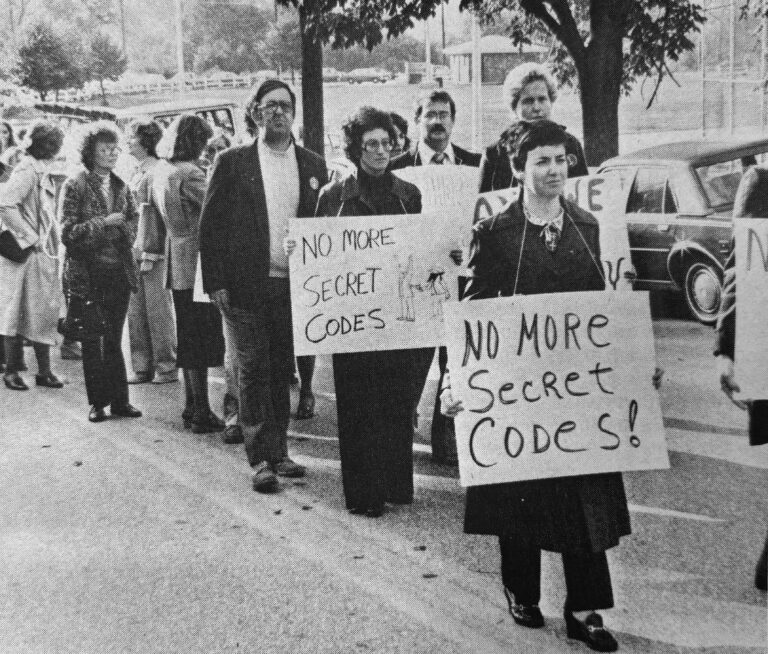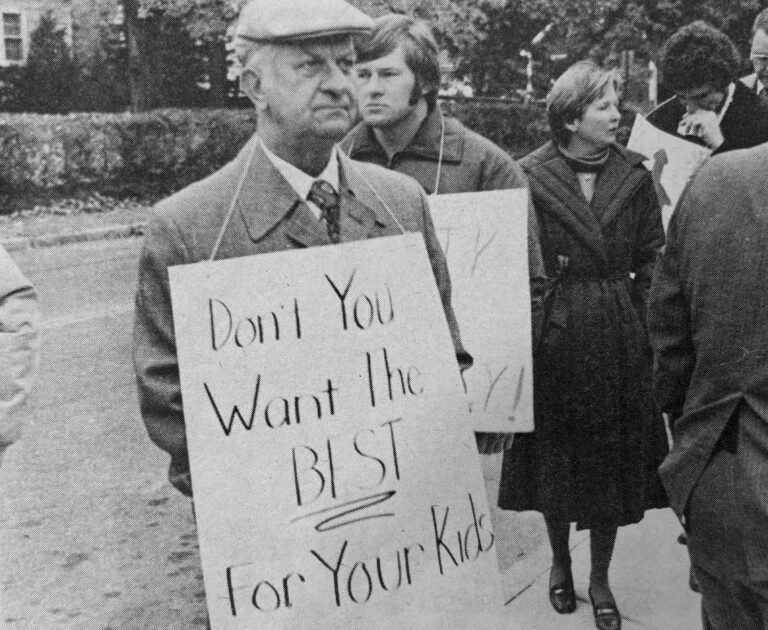Dedham
Striking Dedham teachers protest ‘secret’ code in evaluations

While Dedham teachers had several reasons to walk off the job on Oct. 21, 1980, the most unusual was to protest an apparent attempt by the district to circumvent the reduction-in-force language by embedding coded language in evaluation documents.
In the 1978-1979 school year, the evaluation system explicitly rank-ordered teachers by their perceived “effectiveness,” which led to “at least 26 grievances,” according to MTA Today. The following year, the Dedham Education Association alleged that the district tried to get around the seniority language by relying on coded phrases to indicate who should be kept and who should be laid off. A card attached to a district memo on the coded language was signed ‘Deep Throat,’ though the DEA did not know who sent that memo.
Other major issues in negotiations were the district’s attempt to significantly reduce maternity leave time, and an attempt to eliminate a past practices clause in the contract.
Ann Roche, chair of the DEA bargaining team, said that all but 12 of the DEA’s 300 members voted to go on strike. Following one day of picketing, they agreed to return to the classroom after the school committee agreed to resume negotiations over the weekend.
The contract was settled when a compromise was reached on several issues, including the RIF language. According to MTA Today, beginning the following September, “a teacher can be laid off irrespective of seniority only if the school committee can demonstrate that he or she has performed in a less than satisfactory manner for two consecutive school years.”
We gradually became aware that other criteria were being used as the basis of evaluation, but we couldn’t find out what they were.

The code was designed to be understood by an informed third party, [DEA Bargaining Chair Anne] Roche said, but the evaluated teacher could read the evaluation and not recognize that he or she had been marked for riffing.
